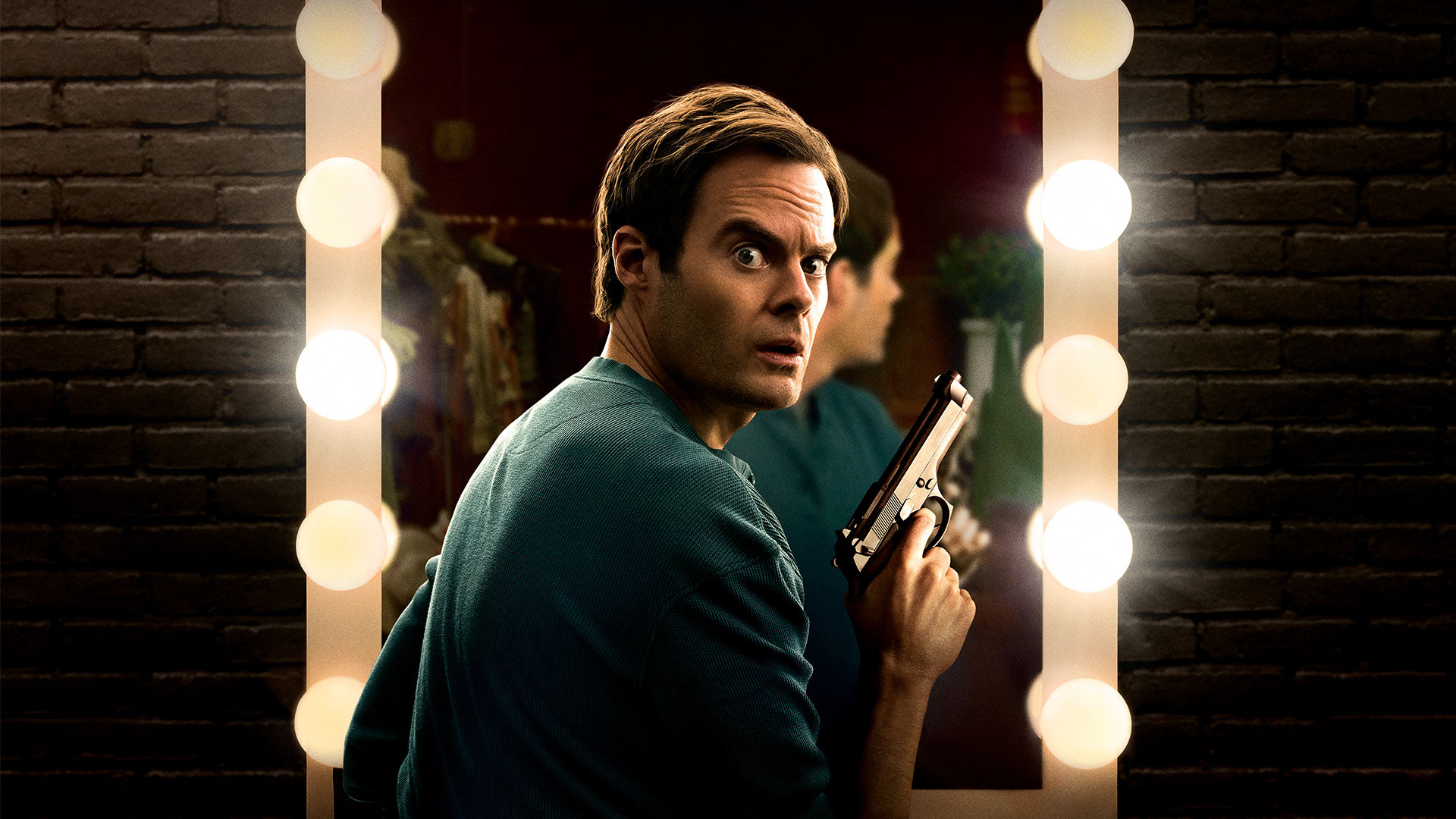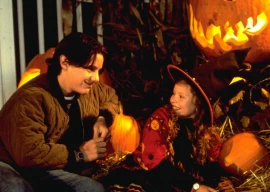
Nuanced brilliance: Bill Hader shines as 'Barry'
Former SNL star leaves audiences stunned with unexpected avatar
KARACHI:
Bill Hader's Barry is a deceptively clever series that has engrossed viewers with its dark aesthetics, compelling narrative, and exceptional performances. As the creator of the show, Hader showcases his talent for storytelling and establishes himself as a gifted force to be reckoned with.
Hader's holistic performance in Barry sees him deliver an intricate portrayal of the ex-marine-turned-hitman. With the directorial reigns in hand, Hader exhibits a keen sense of artistic taste and also creates a visually striking experience, with the last season taking the cake.
Hader skilfully crafts a narrative that forces the audience to both love and hate his character. However, such is the extent of emotional expenditure that one cannot help but marvel at Hader’s sadistic finesse as a creative mind as Barry's journey unfolds. He convincingly embodies the character's complexities, capturing Barry's awkwardness and vulnerability, effectively making them empathise with his struggles.
As a viewer, one wants to root for the on-edge, highly-skilled killer, even during moments of severe moral lows. Hader convinces one that Barry wants to change and is in possession of an inherent goodness that makes him pursue Gene Cousineau's (Henry Winkler) acting class. Whether it's the harrowing aspects of Barry's life as a hitman or his genuine desire for love and validation, Hader brings an incredible amount of authenticity to the character.
Hader skilfully portrays the character's yearning for acceptance, painting a poignant picture of a man searching for a sense of purpose and belonging. His performance effortlessly navigates the delicate balance between Barry's wrongdoings and his genuine desire for a better life, creating a character that is both sympathetic and morally complex.
Having said that, brilliance radiates from the rest of the Barry cast as well. One of the standout performances in the show comes from Winkler, who portrays Gene, the eccentric and self-absorbed acting teacher. Gene is a has-been actor, desperately clinging to his past glory and yearning for recognition.
Winkler effortlessly embodies the essence of this character, bringing to life the quirks, flaws, and eccentricities that make Gene memorable. From the moment he appears on screen, Winkler commands attention, with his impeccable comedic timing. He expertly delivers Gene's pompous lines and exaggerated mannerisms, and his ability to infuse humour into an otherwise insufferable character allows him to serve as a source of comic relief throughout the series.
However, Winkler's performance goes beyond comedy. He masterfully captures the vulnerability and desperation that lie beneath Gene's self-crafted larger-than-life persona. With subtlety, Winkler reveals the insecurities and deep-rooted fear of irrelevance that drive Gene's actions.
Stephen Root's Monroe Fuches, Barry's partner-in-crime, tactfully teeters between exerting control over the protagonist and spiralling at the loss of the same. Throughout the show, Fuches finds himself caught between his own self-preservation instincts and the occasional moments where he goes against his own nature to save a friend.
There are times when Fuches appears weak and subservient, bending to the will of others in order to survive. Yet, in other moments, he displays a level of determination and resilience that is unexpected from someone who usually operates in the shadows. This ebb and flow in Fuches' character keep viewers on their toes, never allowing them to make concrete judgments or decisions about him.
Furthermore, the complex relationship between Fuches and Barry demands the viewers' attention, as it constantly fluctuates between being the source of the problem and the potential solution. Fuches serves as Barry's handler and mentor. Yet, loyalty and trust become increasingly flimsy concepts between the two as the plot moves forward.
Sarah Goldberg's depiction of Sally Reed brings a level of depth to the character that is truly engaging. Through her performance, Goldberg delves into the complexities of Sally's personality, flawlessly navigating her deeply unlikeable and entitled traits.
One of the most striking aspects of Goldberg's portrayal is her ability to convey Sally's anger and bitterness. She brings a raw intensity to the character, capturing the deep-seated frustration and resentment that Sally harbours. Whether it's through sharp dialogue delivery or subtle facial expressions, Goldberg skilfully communicates the underlying emotions that drive Sally's actions.
Goldberg also masterfully embodies Sally's relentless pursuit of fame and recognition. She effectively showcases the character's unwavering ambition and desire for success, highlighting the lengths Sally is willing to go to achieve her goals. Through her performance, Goldberg illustrates the character's self-importance, offering a compelling portrait of someone who believes they are deserving of stardom without necessarily possessing the required "it factor."
What makes Goldberg's performance all the more impressive is her ability to make Sally a symbol of white privilege. Goldberg embodies the entitlement and self-centeredness that often come with that privilege, effectively bringing to life a character that viewers simultaneously despise and find fascinating.
Anthony Carrigan's portrayal of NoHo Hank deserves recognition as well. Initially a delightful source of comic relief, Carrigan's performance evolves into something much more complex and compelling. Hank starts off as an eccentric and lovable character, providing moments of levity amidst the show's darker themes.
Overall, Barry stands as a testament to embracing and experimenting with darker themes through lenses that remain untouched to keep audiences hungry for more.
-(1)1730443275-0/Copy-of-Untitled-(60)-(1)1730443275-0-270x192.webp)

1730095495-1/WhatsApp-Image-2024-10-28-at-11-04-18-(1)1730095495-1-270x192.webp)












COMMENTS
Comments are moderated and generally will be posted if they are on-topic and not abusive.
For more information, please see our Comments FAQ